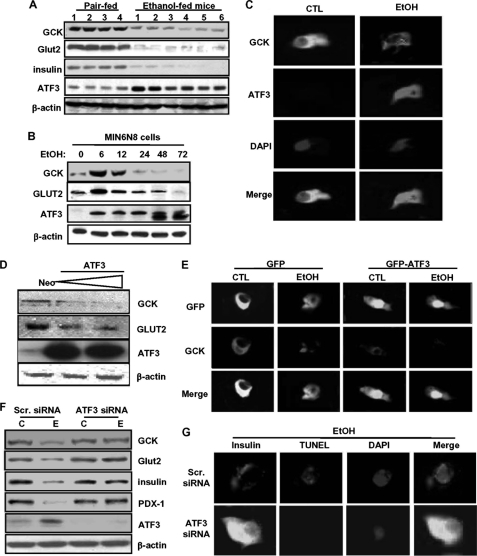FIGURE 2.
ATF3 plays an essential role in ethanol-induced GCK down-regulation and apoptosis. A, effects of chronic ethanol consumption on GCK, Glut2, insulin, and ATF3 protein expression in pancreas tissues. B, effects of ethanol (100 mm) on GCK, Glut2, and ATF3 protein in and MIN6N8 cells. C, after treatment with ethanol for 24 h, MIN6N8 cells were analyzed using immunocytochemistry for GCK and ATF3, subsequently subjected to the DAPI staining (100×). D, MIN6N8 cells were transfected with the expression vector encoding ATF3 and analyzed using Western blot. E, after transfection with empty GFP or GFP-ATF3 vectors, immunocytochemistry for GCK was performed. Fluorescent microscopic images were taken for GFP or GFP-ATF3 (green) and GCK (red), and the final merged images are shown (100×). F, after transfection with scrambled siRNA or ATF3 siRNA, the cells were treated with ethanol and analyzed using Western blot. C, non-treated control; E, ethanol-treated group. G, after transfection with scrambled siRNA or ATF3 siRNA, the cells were treated with ethanol, and immunocytochemistry was performed for insulin and TUNEL assay or DAPI staining (top row, 100×). TUNEL-positive cells were quantified (supplemental Fig. S4B). *, p < 0.05; **, p < 0.01 (n = 100). All of the results were obtained from three independent experiments. CTL, control; Scr., scrambled.

